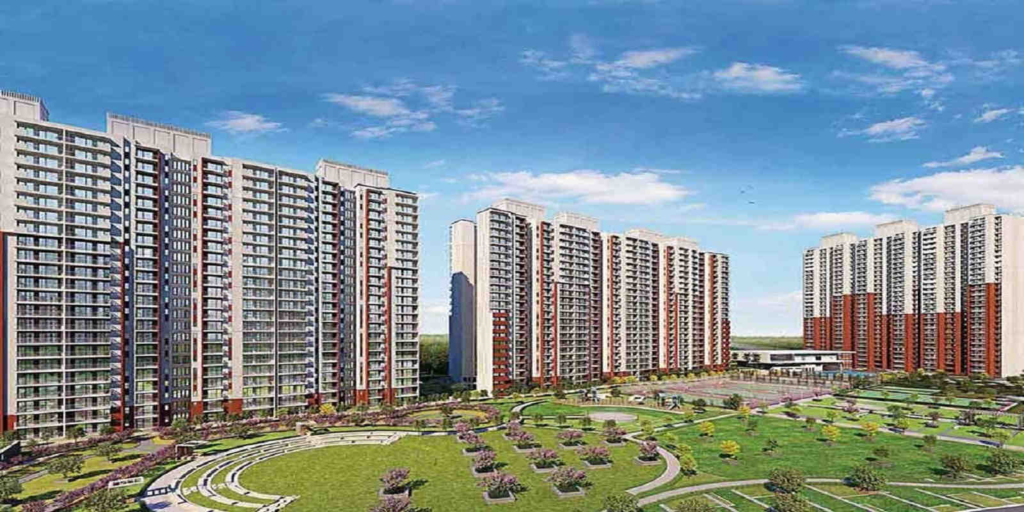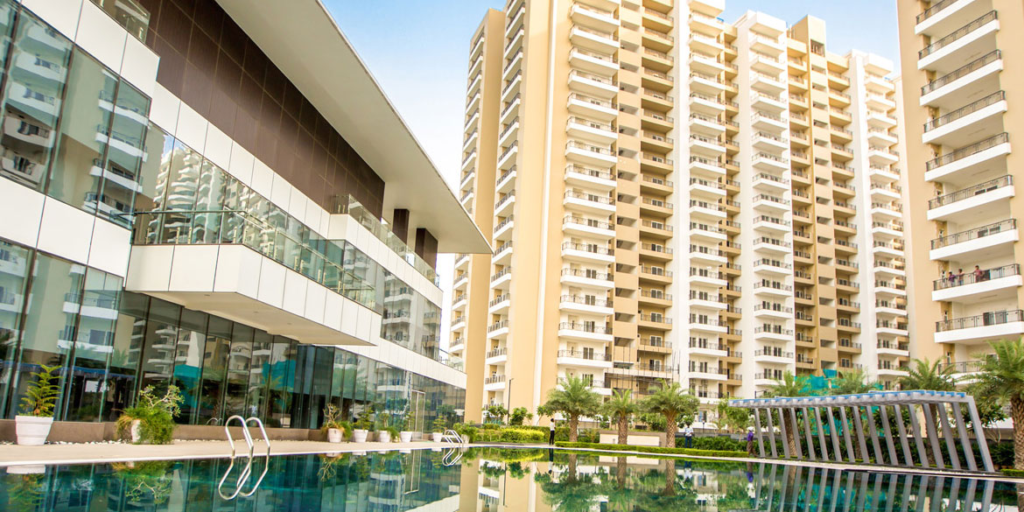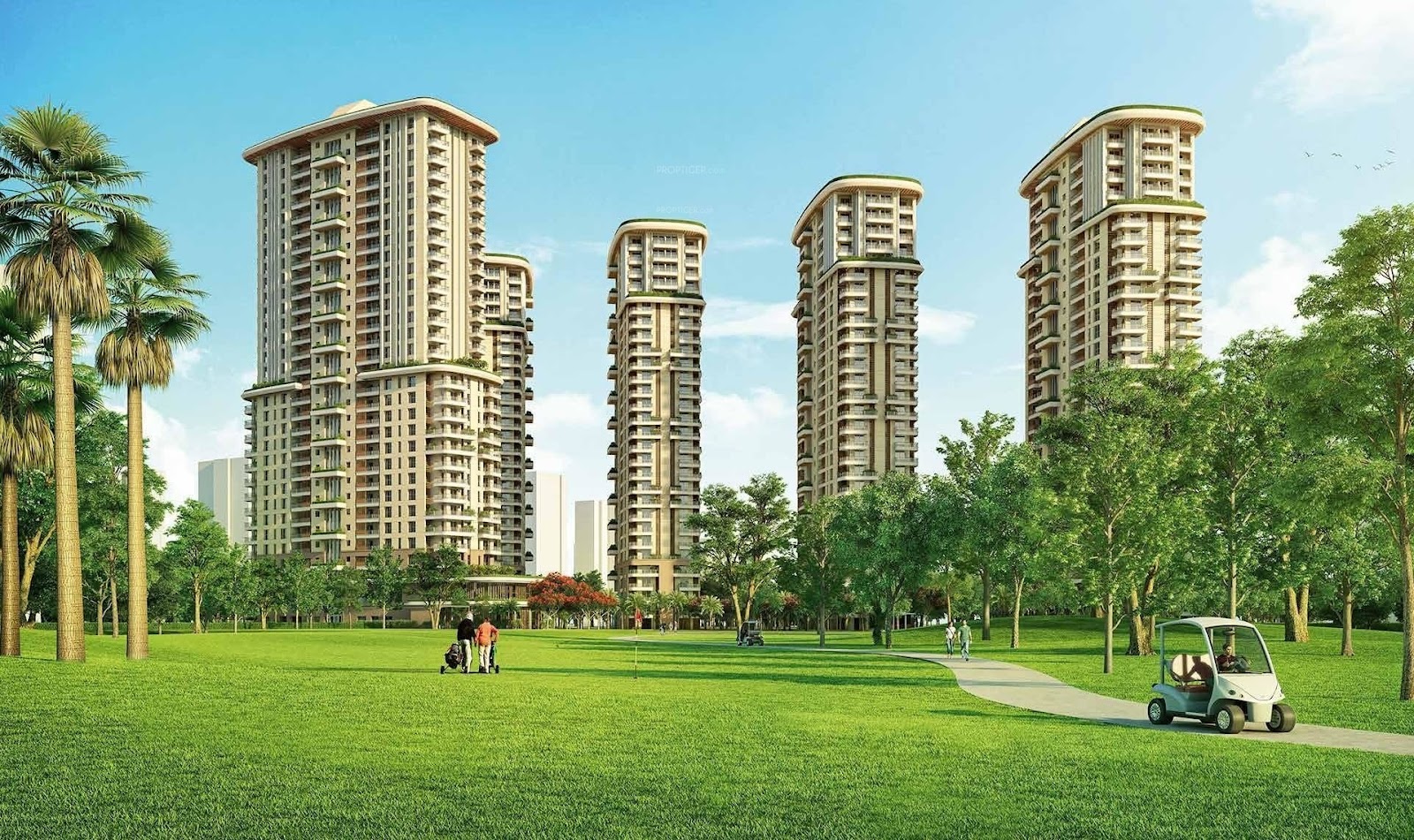Investing in real estate is a profitable and smart way to build wealth. Noida is one of the fastest-growing cities in India, and investing in a residential property here is a wise decision. This guide will provide you with a comprehensive overview of the Noida real estate market, factors to consider before investing, legal considerations, financing options, investment strategies, and property inspection.
Investing in residential property in Noida has numerous benefits, including long-term capital appreciation, rental income, and tax benefits. The increasing demand for residential properties in Noida due to job opportunities, better infrastructure, and a high standard of living makes investing here an attractive option for investors.
The purpose of this guide is to provide an in-depth analysis of the Noida real estate market and help you make an informed decision about investing in residential property in Noida.

Understanding the Noida Real Estate Market
Understanding the Noida real estate market is crucial before investing in residential property. Here are some key aspects to consider:
Overview of Noida:
Noida, short for New Okhla Industrial Development Authority, is a planned city located in the state of Uttar Pradesh. The city is home to several major companies and has emerged as a hub for the IT and manufacturing industries. With a population of over 600,000, Noida is a rapidly growing city with a high demand for real estate.
Current State of the Real Estate Market:
The Noida real estate market has been growing steadily in recent years, with a surge in demand for affordable and mid-segment housing. The city has a high supply of apartments, which account for over 80% of the residential real estate market. The real estate market in Noida is highly competitive, with several reputed builders and developers vying for market share.
Trends and Projections:
The real estate market in Noida is influenced by several macroeconomic factors such as interest rates, inflation, and government policies. In recent years, there has been a shift towards affordable and mid-segment housing, with a growing demand for compact and well-designed apartments. The city is also witnessing a rise in co-living and co-working spaces, driven by the demand for shared spaces among millennials.
The future outlook for the Noida real estate market is positive, with several major infrastructure projects in the pipeline, such as the expansion of the metro network and the construction of a new airport in Jewar. These projects are expected to boost connectivity and drive demand for real estate in the city.
Factors to Consider Before Investing in Residential Property in Noida
Before investing in residential property in Noida, there are several factors that you should consider to ensure that you make a sound investment decision. Here are some of the key factors:
Location:
The location of the property is one of the most important factors to consider when investing in real estate. In Noida, properties located near major transportation hubs, educational institutions, and commercial areas tend to be in high demand. You should also consider the safety and security of the location, as well as the availability of basic amenities such as water, electricity, and sanitation.
Budget:
Before investing in a property, you should determine your budget and ensure that you can afford the down payment, EMI payments, and other expenses associated with owning a property. You should also factor in any additional costs such as registration fees, stamp duty, and maintenance charges.
Property Type:
There are several types of residential properties available in Noida, including apartments, villas, and independent houses. Each property type has its own advantages and disadvantages, and you should choose the one that best suits your needs and budget. For instance, apartments may be more affordable than villas, but may offer limited privacy and space.
Builder Reputation:
When investing in a property, it is important to choose a reputable builder with a track record of delivering quality projects on time. You can research builders online, check their ratings and reviews, and ask for referrals from friends and family members who have purchased properties from them.
Amenities:
The amenities offered by a property can greatly affect its value and appeal. Some of the common amenities offered by residential properties in Noida include swimming pools, gyms, parks, and clubhouses. You should consider the amenities that are important to you and factor them into your investment decision.
By considering these factors, you can make a more informed investment decision and choose a property that meets your needs and budget. Additionally, you should conduct thorough research and due diligence before finalizing your purchase. And seek professional advice from a real estate expert if needed.
Legal Considerations
Legal considerations play a crucial role in investing in residential property in Noida. Here are some key aspects to consider:
Title Verification:
Title verification is the process of verifying the ownership and legal status of the property. It is essential to ensure that the property you are investing in has a clear and marketable title, free from any encumbrances or disputes. You can conduct a title search by visiting the sub-registrar’s office or engaging the services of a property lawyer.
Approvals and Permits:
Before investing in a residential property in Noida. It is essential to ensure that the property has all the necessary approvals and permits from the local authorities. These include the building plan approval, environmental clearance, fire safety clearance, and occupancy certificate. Lack of proper approvals can lead to legal hassles and affect the resale value of the property.
Tax Implications:
Investing in residential property in Noida entails certain tax implications that you need to be aware of. These include stamp duty, registration charges, property tax, and capital gains tax. It is advisable to consult a tax expert to understand the tax implications and optimize your investment returns.
Registration and Stamp Duty:
Property registration and stamp duty are mandatory legal requirements for investing in residential property in Noida. The stamp duty is a state tax levied on the property transaction value. And the registration fee is charged for registering the property in your name. These charges vary from state to state and depend on the property value and location.
Financing Options
When investing in Residential properties in Noida, there are several financing options available to you. Here are some of the most common options:
Home Loans:
A home loan is a popular financing option for property buyers in India. Banks and non-banking financial companies (NBFCs) offer home loans at competitive interest rates. Which can be repaid over a period of up to 30 years. The loan amount depends on your income, credit score, and the value of the property you are planning to purchase.
Government Schemes:
The government of India offers several schemes to encourage affordable housing and boost the real estate sector. These schemes include the Pradhan Mantri Awas Yojana (PMAY) and the Credit Linked Subsidy Scheme (CLSS). PMAY provides subsidies on home loans to eligible beneficiaries, while CLSS offers interest subsidies on home loans to buyers from the economically weaker sections (EWS), low-income groups (LIG), and middle-income groups (MIG).
Builder Schemes:
Many builders offer attractive financing options to lure buyers. These schemes may include zero percent interest loans, flexible payment plans, and down payment assistance. However, it is important to read the fine print and understand the terms and conditions of these schemes before signing up.
Resale Market:
If you are looking for a more affordable financing option, you may consider buying a property in the resale market. In this case, you may be able to negotiate a lower price and pay a smaller down payment than when buying a new property. Additionally, you may be able to take over the seller’s existing home loan. Which can be more affordable than taking out a new loan.
When choosing a financing option, it is important to consider your budget, repayment capacity, and long-term financial goals. You should also compare interest rates, processing fees, and other charges to find the most affordable and suitable option for your needs.
Investment Strategies
When investing in a residential property in Noida, it’s essential to have a clear investment strategy in mind. Your investment strategy should align with your financial goals, risk tolerance, and investment horizon. Here are some investment strategies to consider:
Long-term vs. Short-term
Long-term investment in residential property in Noida involves holding onto the property for an extended period, typically over five years. Moreover, Long-term investment can provide stable rental income, capital appreciation, and tax benefits. Short-term investment, on the other hand, involves buying a property and selling it within a short period, usually less than three years. Short-term investment can provide quick profits, but it’s also associated with higher risks.
Rental Income
Investing in residential property in Noida for rental income is a popular strategy among investors. The city has a robust rental market, and rental yields are relatively high. To maximize rental income, it’s essential to choose the right location, property type, and amenities. Also, ensure that the rental income covers all expenses, including property taxes, maintenance costs, and mortgage payments.
Capital Appreciation
Capital appreciation is the increase in the property’s value over time. Investing in residential property in Noida for capital appreciation involves buying a property at a lower price and selling it later at a higher price. To maximize capital appreciation, it’s essential to choose the right location and invest in upcoming areas with good growth potential.
Portfolio Diversification
Diversification is an investment strategy that involves spreading your investments across different asset classes to minimize risks. Investing in residential property in Noida can be a valuable addition to your investment portfolio, especially if you have investments in other asset classes such as stocks, bonds, and mutual funds. Investing in different types of properties, such as apartments, villas, and plots, can also help diversify your real estate portfolio.
Property Inspection
Before investing in a residential property in Noida, it’s crucial to conduct a thorough property inspection. A property inspection involves three types of inspections: physical inspection, technical inspection, and documentation inspection.
Physical Inspection
A physical inspection involves examining the property’s physical condition, including the structure, plumbing, electrical, and mechanical systems. It’s essential to hire a professional home inspector to conduct the physical inspection to identify any potential issues that may require repairs or renovations.
Technical Inspection
A technical inspection involves examining the property’s technical aspects, such as the soil quality, water supply, and drainage system. It’s essential to hire a professional technical inspector to conduct the technical inspection to identify any potential issues that may affect the property’s value or pose safety hazards.
Documentation Inspection
A documentation inspection involves reviewing the property’s legal documents, including the sale deed, title deed, building plan, and other relevant documents. It’s essential to hire a professional lawyer to conduct the documentation inspection to ensure that the property has clear title and all necessary approvals and permits.

Conclusion
Investing in residential property in Noida can be a high-paying long-term investment option, provided you make an informed decision based on thorough research and analysis. This guide has highlighted the various factors to consider, from understanding the Noida real estate market to legal considerations, financing options, investment strategies, and property inspection.
It is essential to assess your investment goals, budget, and risk appetite and choose the right location, property type, and builder reputation to ensure maximum returns. Additionally, conducting a thorough property inspection, including physical, technical, and documentation inspection, can help you identify any potential issues and make an informed decision.
It is advisable to consult with real estate experts, property lawyers, and tax experts to understand the legal implications and optimize your investment returns. By following these guidelines and making a well-informed decision, you can invest in residential property in Noida with confidence and achieve your long-term investment goals.

